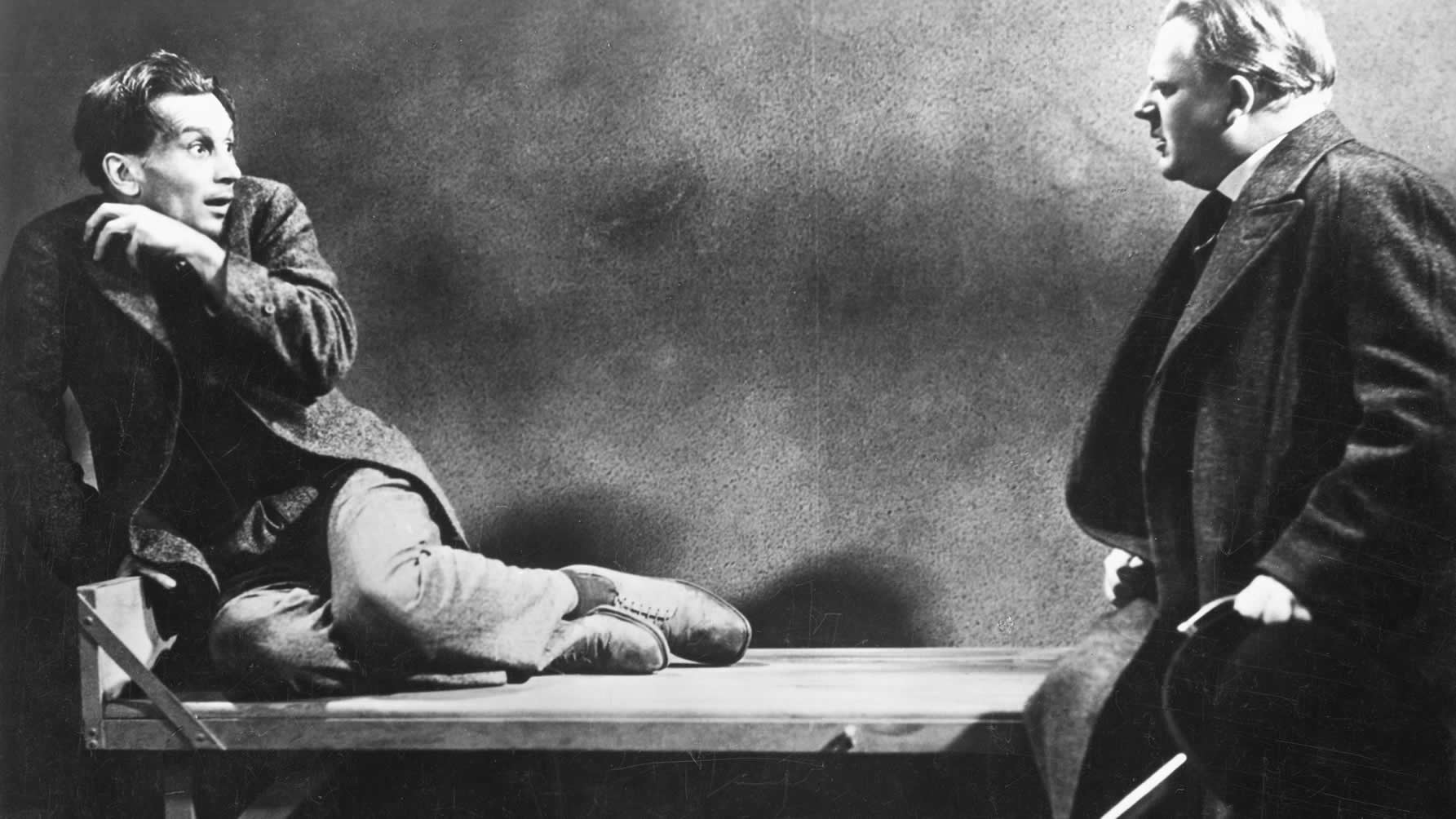Dogged Determination
As the follow-up to his most successful silent film (Dr. Mabuse, the Gambler), Fritz Lang’s The Testament of Dr. Mabuse (1933) revives one of cinema’s most intriguing criminal masterminds. When we last saw Dr. Mabuse, he was driven insane by the collapse of his criminal empire. Eleven years later, he has progressed from a coma to only being able to write — first with unintelligible scribblings, then with arcane symbols and unrecognizable words, and finally with detailed instructions for carrying out devious crimes and acts of terror.
Meanwhile, we are reintroduced to Inspector Lohmann, the detective from M, Lang’s previous sound film. Lohmann has encountered the doctor’s name in connection with several puzzling investigations. Were these crimes perpetrated by the same group? And how could they involve a criminal mastermind who is physically incapacitated?
The Testament of Dr. Mabuse is a thrilling detective story, but also a not-so-subtle reproach of Hitler and the Nazis, who had just risen to power. It even foreshadows our own time with a diabolical character who commits terrorist acts — not for financial gain, but to create chaos and fear among the public.
In an interview with Mark Shivas, published in the September 1962 issue of Movie, Lang explains the origin of the project, and how the film was banned in Germany before it could be released:
In ’32, I guess, someone came to me and said, ‘Look, Mr. Lang, we have made so much money with Mabuse. . . ’ I said, ‘Yes, much more than I did. . . .’ He said, ‘Can’t you give us another Mabuse?’ So I started thinking about it and I said, ‘All right, what shall I do? This guy is insane and in an asylum — I cannot make him healthy again. It is impossible.’ So I invented, with the help of Mrs. Von Harbou, the next Mabuse — The Testament of Dr. Mabuse — and then said, ‘Now I am finished. Now I am killing him.’ I had been able to put into the mouth of an insane criminal all the Nazi slogans. When the picture was finished, some henchmen of Dr. Goebbels came to the office and threatened to forbid it. I was very short with them and said, ‘If you think you can forbid a picture of Fritz Lang in Germany, go ahead.’ They did so.
As Lang tells it, a few days after the ban was announced, he was summoned to meet with Goebbels, who told Lang that Hitler was a fan of Die Nibelungen (1924) and Metropolis (1927). Hitler wanted Lang to head up a group that would produce National-Socialistic films for the Nazi party. Lang feigned excitement over the offer, but fled to Paris that night. We have only Lang’s word for the meeting, which is at odds with The Testament of Dr. Mabuse having just been banned for its strong political content.
Whatever the truth, Lang left Germany and went on to have a productive career in Hollywood, directing such classics as Fury (1936), Man Hunt (1941), Ministry of Fear (1945), The Big Heat (1953), While the City Sleeps (1956), and Beyond a Reasonable Doubt (1956). He returned to Germany to direct yet another Mabuse film, titled The Thousand Eyes of Dr. Mabuse (1961).
The digitally restored print on the Criterion DVD is ample proof that this is one of Lang’s best films. Originally 124 minutes, the restored version runs 121 minutes and is based on a German Film Institute print, with missing scenes supplied by prints from the Federal Film Archive (Germany) and the Munich Film Museum. In addition to the top-quality restored print, Criterion provides a second disc with the 94-minute French-language version of the film, which Lang directed simultaneously with the German-language version (Lang was fluent in French). Until 1951, it was the only version available for film historians. The second disc also features a 1964 interview with Lang, background on Mabuse’s creator (the character first appeared in print), and a comparison of the German, French, and American-dubbed versions.
If you’re a fan of Hollywood film noir, you’ll feel right at home with this film’s dark and menacing world. And if you’re a fan of detective and crime movies, you’ll enjoy Lohmann’s dogged determination and the intricate layering of the plot.
The Testament of Dr. Mabuse
(1933; directed by Fritz Lang)
The Criterion Collection (DVD)
Friday, October 1 at 10:30 a.m. eastern on Turner Classic Movies
Reviews